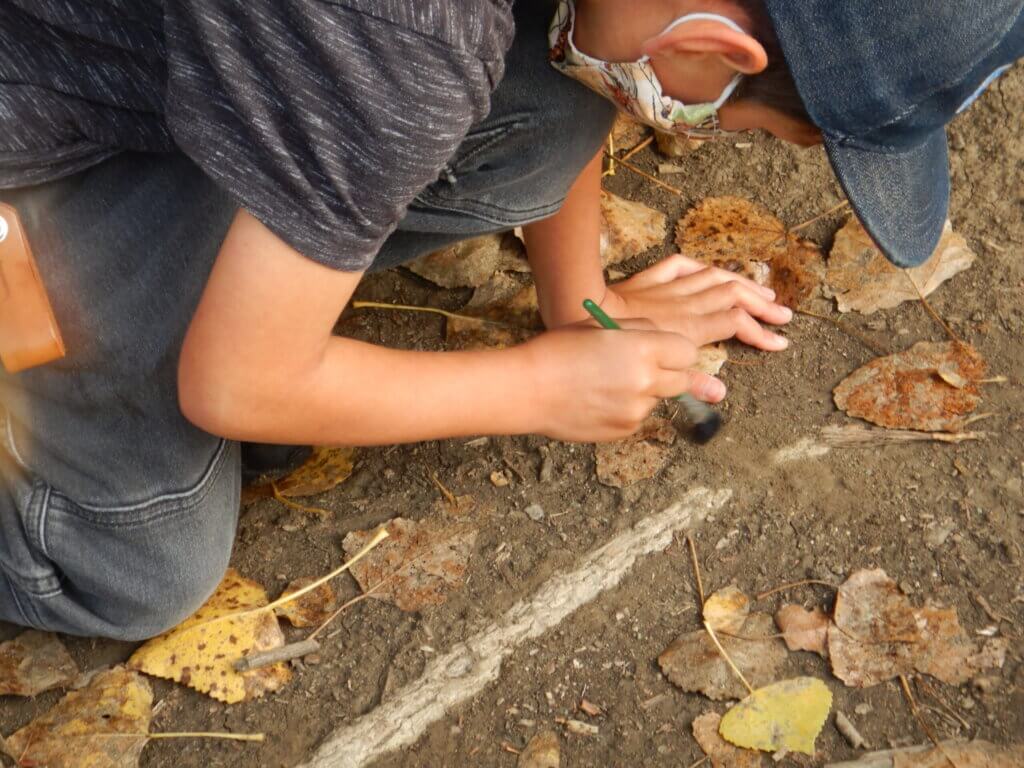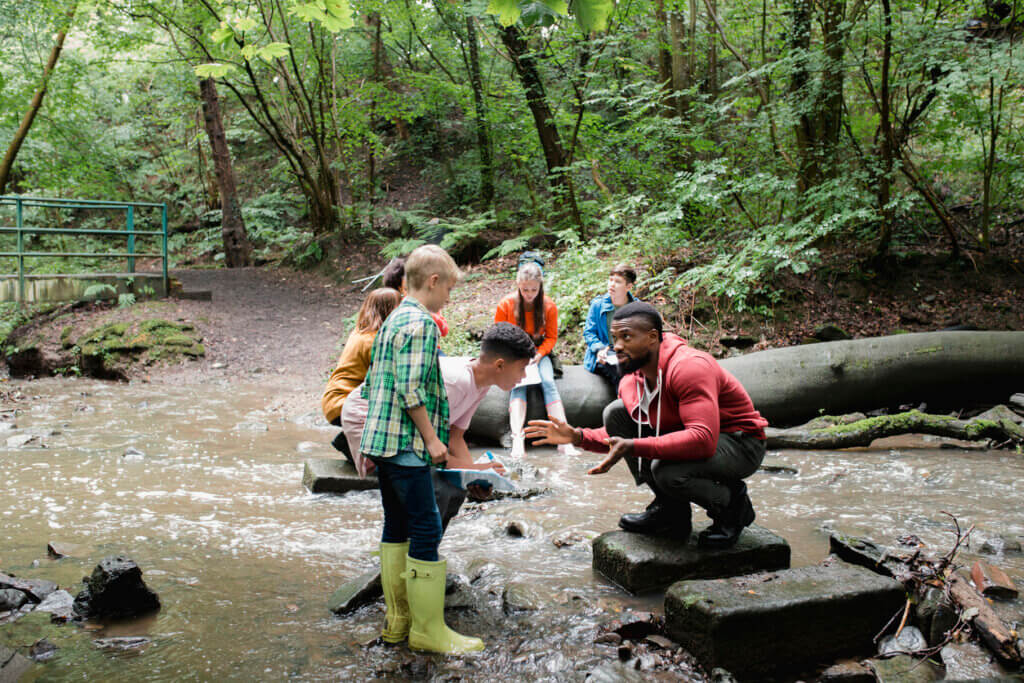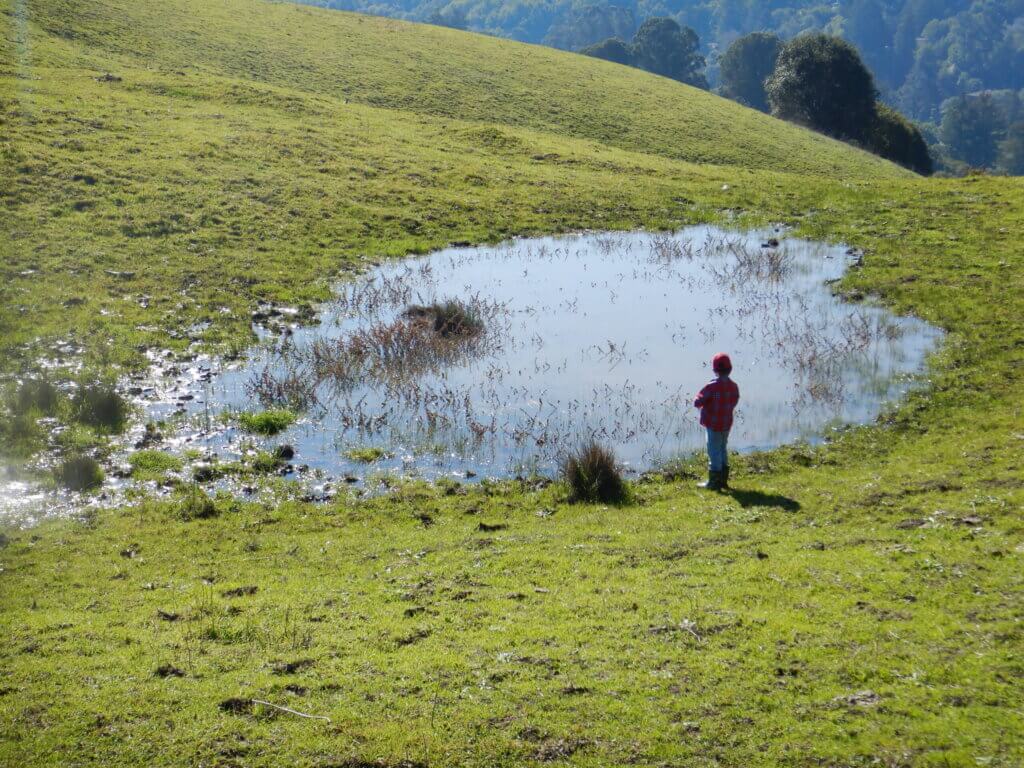Want to take a little quiz? Come on, it’ll be fun. Just answer this one question before you get started reading the rest of this article.
Which of the following are widely accepted benefits associated with TK–12 students spending time learning outdoors? (Check all that apply.)
▢ Improved Ability to Concentrate/Focus Upon Returning to the Classroom Indoors
▢ Improved Social and Emotional Development
▢ Improved Environmental Literacy
▢ Decreased Levels of Anxiety, Alienation, and Depression
▢ Improved Overall Learning
▢ Improved Science Learning
▢ Decreased Levels of Attention-Deficit/Hyperactivity Disorder
▢ Decreased Levels of Hypertension
▢ Decreased Chance of Viral Infection
▢ Increased Sense of General Well-being
▢ Increased Connection to Nature (Associated with General Well-being)
▢ Decreased Incidence of Behavioral Problems Requiring Disciplinary Actions
▢ Lowered “Affective Filter,” Which Promotes Language Acquisition and Development
▢ Improved Ratings on Their School’s Fun Meter as Self-reported by Students
▢ Improved Likelihood of Engaging in Climate or Environmental Action
▢ Improved Science and Environmental “Activation” with Girls Benefitting More than Boys
▢ Improved Science and Environmental “Activation” with Students of Color Benefitting More than White Students
▢ All of the Above
OK, everyone done? Ready to score your quiz? How many of you checked “all of the above”? Technically that’s not the correct answer. Schools don’t really have a “fun meter,” I just made that up. All of the other responses, however, are correct.
Decades of research from many different disciplines show that spending time outdoors has myriad benefits, especially for children. Fresh air, the sound of water, the feel and smell of soil, looking up at trees, kneeling in tidepools, and gazing at inspirational vistas serve as powerful antidotes to nearly every vexing problem facing children in California (in fact, children everywhere!) Research findings, currently in press, from the Lawrence Hall of Science BEETLES Project even indicate that while spending time in outdoor learning programs benefits all students in significant ways, it benefits girls more than boys and students of color more than white students, making outdoor learning a powerful resource for closing opportunity gaps that have existed for centuries.
None of these findings are surprising. Sometimes lay understandings, theoretical models, empirical evidence, and indigenous knowledge all line up. The surprising part is how difficult it is sometimes to do the thing that we know is best for our children, even when we all agree on what that thing is. Systems change—re-thinking what it means to be “in school”—doesn’t happen easily, especially in a system as large and complex as California, even when all the evidence points clearly in the same direction.
The good news (which you might already know) is that Ten Strands is usually up for taking on difficult challenges.

Last fall, Ten Strands director of equity and inclusion, Celeste Royer, and I met individually with over thirty thought partners to explore the possibility of forming a broad coalition to launch a statewide campaign for outdoor learning. We spoke to field leaders in expanded learning, TK–12 education, equity and justice in the outdoors, public health, pediatrics, epidemiology and mental health research, education research, outdoor science and environmental education, philanthropy, education policy, language development, and indigenous ways of knowing. The goal of such a campaign would be a statewide policy (e.g., legislation, a ballot proposition or initiative, a budget act, etc.) with funding attached to dramatically increase the amount of time that students spend learning, playing, socializing, and exercising outdoors during their time at school. We are less interested in another recommendation or resolution, or the addition of environmental education to another long list of approved ways that schools are allowed to spend money. We are more interested in funds dedicated specifically to supporting outdoor learning on green schoolyards, walking field trips to nearby parks and open spaces, field trips that require transportation, and weeklong overnight outdoor science schools.
I consider myself a science, environmental, ocean, and outdoor educator. I’ve been at it a long time. Our community has made impressive progress, usually in opportunistic bursts. We’ve worked with teachers and community-based organizations, district superintendents, and county offices of education; we’ve created blueprints, principles and concepts; we’ve passed unfunded mandates, legislation, and changes to Ed Code; and we’ve integrated our work into state frameworks and instructional materials adoption criteria. Still, our progress has not even kept pace with the need, and in some ways the situation with TK–12 science education, climate change, and environmental degradation seems worse and more unjust now than it did twenty or thirty years ago. I have mostly viewed this issue and its solutions through the lens of academic learning, primarily science and environmental learning. Celeste and I heard from our conversations last fall that the physical and emotional health benefits of being outdoors are at least as important as those related to learning—maybe even prerequisite to learning. And we heard how important it is to find and amplify the intersections of the priorities of our many respective fields so that we can advocate together across sectors for doing what we know is best for our children. We heard that the time is right to launch this statewide outdoor learning campaign.

We’re now planning next steps and looking, as usual, for financial support to move forward. We envision a campaign that will be comprised of four strategies:
-
- Leading Edge Exemplars: Legislators, government officials, educators, and the public need evidence that the vision is achievable. We will find, amplify, and document places where outdoor learning is already taking place. They are demonstrations of what is possible—places where experimentation and innovation take place, where models and best practices are designed and adapted to a variety of conditions. Leading Edge Exemplars will center the needs of marginalized and vulnerable communities and provide stories that will be widely shared by the Communications strategy, studied by the Evaluation and Research strategy, and serve as scalable models for the Policy and Advocacy strategy.
-
- Policy and Advocacy: We will build champions among legislators, the governor’s office, and various state agencies. Together we will craft the mechanisms best suited for scaling up statewide. The Policy and Advocacy strategy depends on having Leading Edge Exemplars; engaging, audience-specific multimedia communications collateral from the Communications strategy; and credible evidence from the Evaluation and Research strategy.
-
- Communications: Relentless, professional, compelling communications will be essential to make the case that outdoor learning is essential for every California student and solves or mitigates an array of the most pressing problems facing vulnerable and marginalized communities. We will create and deploy videos and messaging collateral for radio, TV, print, blogs, social media, and podcasts targeting different key audiences. Communications will draw from the Leading Edge Exemplars and from studies conducted by the Evaluation and Research strategy and will be the primary source of support for the Policy and Advocacy strategy.
-
- Evaluation and Research: We will elevate existing research that demonstrates the benefits to youth of spending time outdoors. We will gather baseline data showing how many and which students currently benefit from outdoor learning. We will conduct 1) medical/health research studies looking at the benefits to students who participate compared to students who don’t; 2) studies of learning outcomes, including science and environmental learning; and 3) storytelling with “street data” and case studies showcasing community voices. We will track numbers, including both who is served and who is not.

We are just getting started, so stay tuned. We hope that by spring, there will be ways for all of the Ten Strands and California Environmental Literacy Initiative communities to participate in active ways. We are eager to hear your questions and comments about how to move the campaign forward. And if you come across any schools that actually have a fun meter we can research, please let us know!


2 Responses
Craig,
As usual, you are on the forward edge of every movement I think is game changing in outdoor ed. I will follow you initiative with care. I am an advisor to your fellow travelers in Maine, the Maine Outdoor School for All coalition (www.mosfa.org). They are microcosmic in scale compared to your effort, they do not have the intellectual support of all the research coming out of BEETLES and the Hall, but they are determined and have very broad support in the Maine legislature.
The MOSFA coalition is entirely made up of practitioners, they are self organized (not at the behest of a funder) and have been raising money together for years. They are attentive to other states trying to implement outdoor school for all (especially Oregon), I will make sure they know about your efforts.
How can I help your efforts? I may have an excuse to be in the Bay Area in the next several months, I will try to pay a visit.
Best wishes to Jedda and the rest of the team. I hope we can find a way to reconnect.
Best,
Arthur
Great to hear from you, as always, Arthur! I have followed ELMMS in Maine but didn’t know about MOSFA! So, thank you. Please let me know when you’re in the Bay Area!